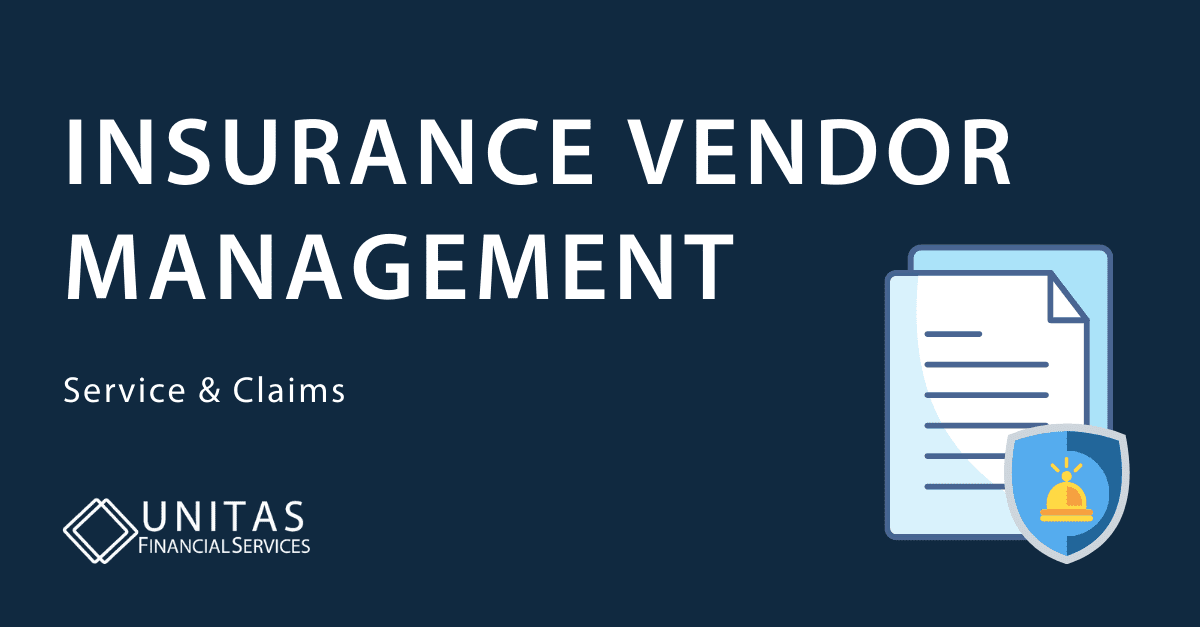Insurance Vendor Management: Service and Claims (Part 4)

In this series on Insurance Vendor Management for Lenders, we discussed how to evaluate an insurance policy, the specialization of the insurance company and the agent, and the 9 Critical Steps for Insurance Vendor Management. In this article, we tackle claims and administration of the policy.
Service and Administration
There is a high cost associated with poor service or poor administration. It is sometimes difficult to precisely quantify the cost, but it is significant. When evaluating vendors or anything in business, management must consider the cost of everything. Poor service will use up more employee hours as they have to take issues into their own hands, follow up with providers who haven’t gotten back to them, and do the thinking and work that the provider should be doing. Poor service also means a lack of communication about the products from the experts who sold them to you, which is an inefficient use of those products. Without attentive service, insurance products can be mishandled or misapplied, leading to more expense to fix the errors or potential loss. Potential claims that should be submitted never get filed because the agent or company isn’t communicating regularly with key employees within your shop, so they are not even sure what coverages they have. Poor administration takes a heavy toll. With good service and communication from your provider, you maximize the benefits of the program—without it, you lose money, and that loss can be significant.
Read: How Well Do You Know Your Collateral Portfolio Insurance?
Key questions to ask:
Who will be our service representative?
Does that rep have expertise on this product?
How often will they stop in to visit our staff?
Where is the administration for the product handled?
What is the administrative process for this product?
What references can you give us on how the service and administration of the product are handled?
Who else is available to me for service questions?
What is your standard turnaround time for callbacks or answering questions?
Who will review the policy with me regularly to make sure I have the right product for the needs of my institution?
Read: Mitigate Risks by Understanding your Collateral Protection policy
Claims Handling
Now let’s take a look at claims handling. Why do you purchase insurance? You buy it to pay a small amount now at a manageable price to avoid a larger loss later. When losses occur you expect to have quick, fair, and approved claims. What good is a highly rated and financially secure company on paper if they don’t pay claims when you have actual losses? Before even looking at financials and ratings (most vendors will have only selected those companies with desired ratings and financials), look at claims handling and payment. Claim standards are directly related to the policy verbiage; however there are insurance companies who let their claims division control the claims process, and that can be bad for the client. Many claims adjusters see it as their job to remove their company from the position of paying for losses so that claims stay low and the company makes more money. This short-term thinking is prevalent in some companies and will be a source of frustration to your staff and lead to more loss. The agent and company both need to be on the same page and understand that they took your premium to cover your risk, and when that risk causes loss, they need to respond with payment. Your agent should also take an active role in the claims process from start to finish so that the customer gets the maximum benefit out of your claims (while also balancing that with premium levels that you also want to keep relatively low).
Read: How Does Your Collateral Protection Provider Handle Claims?
Key questions to ask:
What role does your agent take in the claims process?
What staff do they have dedicated to the claims process, and what role do they take?
What is your goal/standard for turnaround time on claims?
Where are claims handled?
Can you see a current claim form and go over the required info for filing a claim with my staff?
If I have an issue with a claim or payment, who will review it with me and take action for me?
What references can I talk to that have had recent claims on this product?
Who has the final say on a claim: the agent, the insurance company execs, or the claims dept?
Some products lend themselves to human error and other issues, whereas Blanket products simplify and streamline transferring risk on your collateralized portfolio. Your dedicated Unitas agent can help determine what product is right for your institution.








